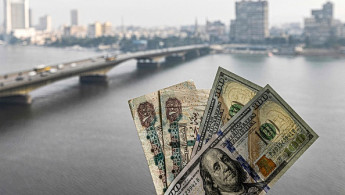Egypt’s annual headline inflation jumps as prices of basic necessities continue to rise
Egypt's annual headline inflation hit 39.7 per cent last month compared to 38.2 per cent in July as the prices of basic necessities have continued to soar, taking a heavy toll on the North African country's low and average-income households.
The monthly headline inflation in Egypt also jumped by 1.6 per cent in August compared to July, the state-owned Al-Ahram news outlet reported, citing an official statement by the country's Central Agency for Public Mobilisation and Statistics (CAPMAS).
The state-run agency attributed the surge in annual headline inflation to the rising prices of food and beverages by 71.9 per cent.
Restaurant and hotel services jumped by 49.5 per cent, while transportation services increased by 15.2 per cent.
Egypt is the world's largest wheat importer, and its current economic problems have been blamed on external factors such as the COVID-19 pandemic and the Russian war on Ukraine, which severely impacted global foodstuff supplies and other essential commodities.
However, experts believe that severe economic mismanagement has also played a significant role in Egypt's current predicament, with the Egyptian military controlling large sectors of the economy and the state investing billions of dollars in "white elephant" projects - such as the New Administrative Capital.
Last month, the Central Bank of Egypt (CBE) raised key interest rates by one per cent to encourage citizens to further invest in banks.
The overnight deposit rate, the overnight lending rate and the rate of main operations rose to 19.25 per cent, 20.25 per cent and 19.75 per cent, respectively.
In October last year, the CBE imposed exchange rate flexibility, allowing the value of the Egyptian pound to be regulated by market forces. The change aimed to save Egypt's already ailing economy after securing a US$3 billion loan from the International Monetary Fund (IMF).
A US dollar is valued at 30.95 in banks and currency exchange offices, but it is worth about 40 EGP in the parallel, informal market at the time of publication.




 Follow the Middle East's top stories in English at The New Arab on Google News
Follow the Middle East's top stories in English at The New Arab on Google News


![A group of Palestinians, foreign and Israeli activists gather to participated in an olive picking event on the land in the town of Battir, which is under threat of confiscation by Israel in Bethlehem, occupied West Bank on 8 November 2024. [Getty]](/sites/default/files/styles/image_330x185/public/2182930803.jpeg?h=199d8c1f&itok=__0LgGsa)